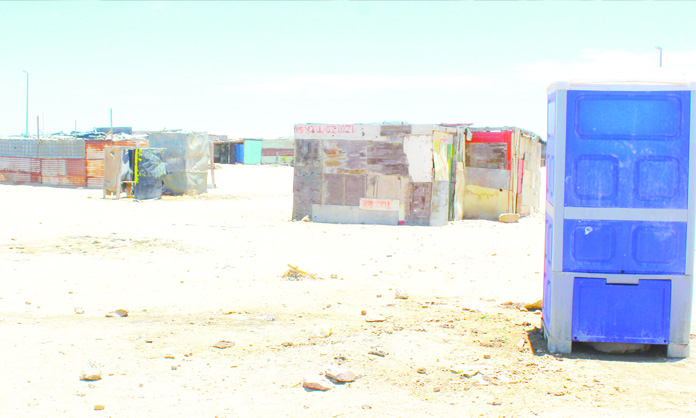Health and social services minister Kalumbi Shangula says despite over 93% of Namibians having access to improved water supply, sanitation remains a significant challenge in the country.
He said this at Namibia’s first official commemoration of World Toilet Day yesterday.
The event, themed ‘Accelerating Change’, was held at Swakopmund’s DRC informal settlement, where about 20 000 people live (most of them without proper toilets).
Shangula’s keynote was delivered by deputy minister Esther Muinjangue.
World Toilet Day, established by the World Toilet Organisation in 2001 and officially recognised by the United Nations in 2013, aims to tackle the global sanitation crisis.
According to world statistics, more than 2,5 billion people globally lack access to improved sanitation.
“In Namibia, the lack of sanitation not only affects public health, but also human dignity,” said Shangula, stressing the need to break the cycle of disease through improved hygiene and the elimination of open defecation by 2030, aligning with Sustainable Development Goal Six.
He said more than half of the Namibian population practises open defecation and the country has struggled with sanitation-related health issues, including an hepatitis E outbreak from 2017 to 2022, which saw 6 517 cases and 55 deaths.
The Erongo region reported 1 334 cases of bloody diarrhoea and 19 958 cases of non-bloody diarrhoea in the past year, underscoring the urgency of addressing sanitation and hygiene issues.
“Using a toilet and washing hands with soap and water is the most effective way to prevent diseases,” Shangula noted, expressing confidence in the Namibia Water and Sanitation Sector Programme and other partners to find solutions.
During World Toilet Day, health messages emphasising the importance of toilets and hand washing will be disseminated through various media channels and house-to-house campaigns.
Shangula also referenced the Public and Environmental Health Act, 2015, which mandates local authorities to construct public sanitation facilities and promote hygiene.
“It might seem unusual to dedicate a day to toilets, but the importance of sanitation cannot be overstated,” said Swakopmund mayor Dina Namubes.
“For many, the simple act of using a clean and safe toilet is a luxury many cannot afford.”
In response to this challenge, the Swakopmund municipality, as per its mandate to provide basic services to the community, has provided a total of 160 mobile toilets for the DRC community, and additionally, has opened seven flushing toilets at sanitation centres for the public, as well as 487 septic tank toilets in the DRC area.
“There is still more to be done to develop and implement strategies to improve sanitation services in our communities,” she said.
In April, The Namibian reported that at least 43% of Namibians use river beds, plastic bags or containers to dispose of human waste.
Unicef’s representative in Namibia Rachel Odede in April said the country faces a sanitation challenge mostly in rural areas.
The EU has provided a grant of roughly N$7 million to improve sanitation in the informal settlements of 10 towns in Namibia.
Stay informed with The Namibian – your source for credible journalism. Get in-depth reporting and opinions for
only N$85 a month. Invest in journalism, invest in democracy –
Subscribe Now!






